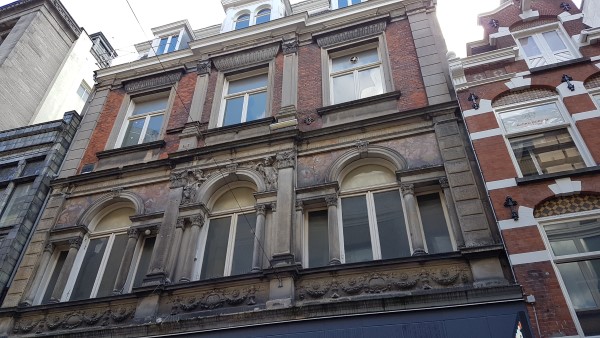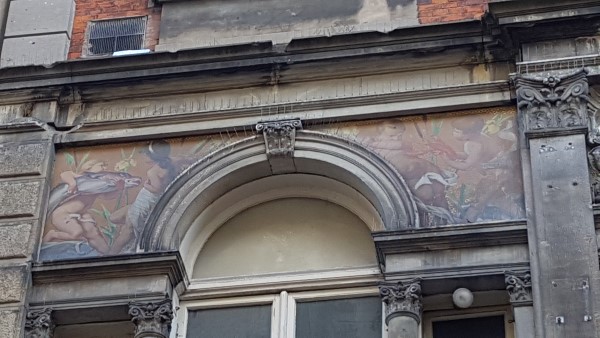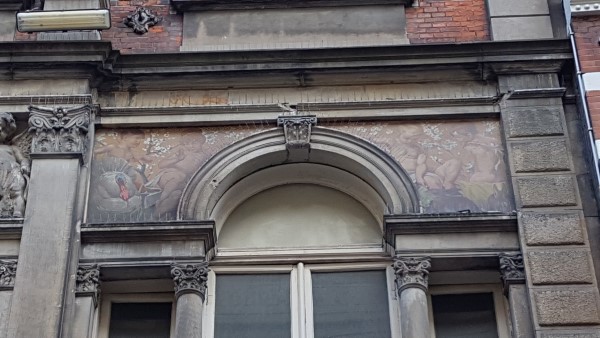- Year 1906.
- 09-03-1906.
- Kalverstraat 3 and 5.
- Built 1889.
- Oyster restaurant.
- Dinner with the Members of the board of the Royal Concertgebouw.
- Multatuli incident: Gustav Mahler had great respect for the “Max Havelaar” by Multatuli (Edward Douwes Dekker (1820-1887)).
- Hendrik Jan de Marez Oyens (1843-1911).
- Hendrik (Han Henri) de Booy (1867-1964).
Multatuli incident
Mahler was first invited to Holland in the autumn of 1903 but was not entirely enthusiastic at the prospect. One of his favourite novels was Max Havelaar (1860), a work critical of Holland and her colonies, by Edward Douwes Dekker (1820-1887), who wrote under the name of Multatuli, which in Latin means ‘I have borne much’.
“Max Havelaar” or “The Coffee Auctions of the Dutch Trading Company” played a key role in shaping and modifying Dutch colonial policy in the Dutch East Indies in the nineteenth and early twentieth century. In the novel, the protagonist, Max Havelaar, tries to battle against a corrupt government system in Java, which was then a Dutch colony.
An important Dutch contribution to world literature, the novel revolves around its hero, Max Havelaar, and his foil, the narrowminded Droogstoppel.
Ever since Mahler and Alma had read the book, the name Droogstoppel had been synonymous in their minds with aggressively middle-class philistines in general. Mahler could not avoid detecting a certain prosperous narrow-mindedness in Amsterdam too and unchivalrously placed Mengelberg’s wife (Mathilde Mengelberg-Wubbe (1875-1943)) among their number.
See Reading.
But such was his initial enthusiasm for the country that he even considered settling in the Netherlands when he left Vienna, a plan which, not entirely serious, was soon abandoned. No doubt the Dutch countryside bordering on the North Sea failed to endear itself to a man who was fond of the Austrian mountains and lakes above all else.



